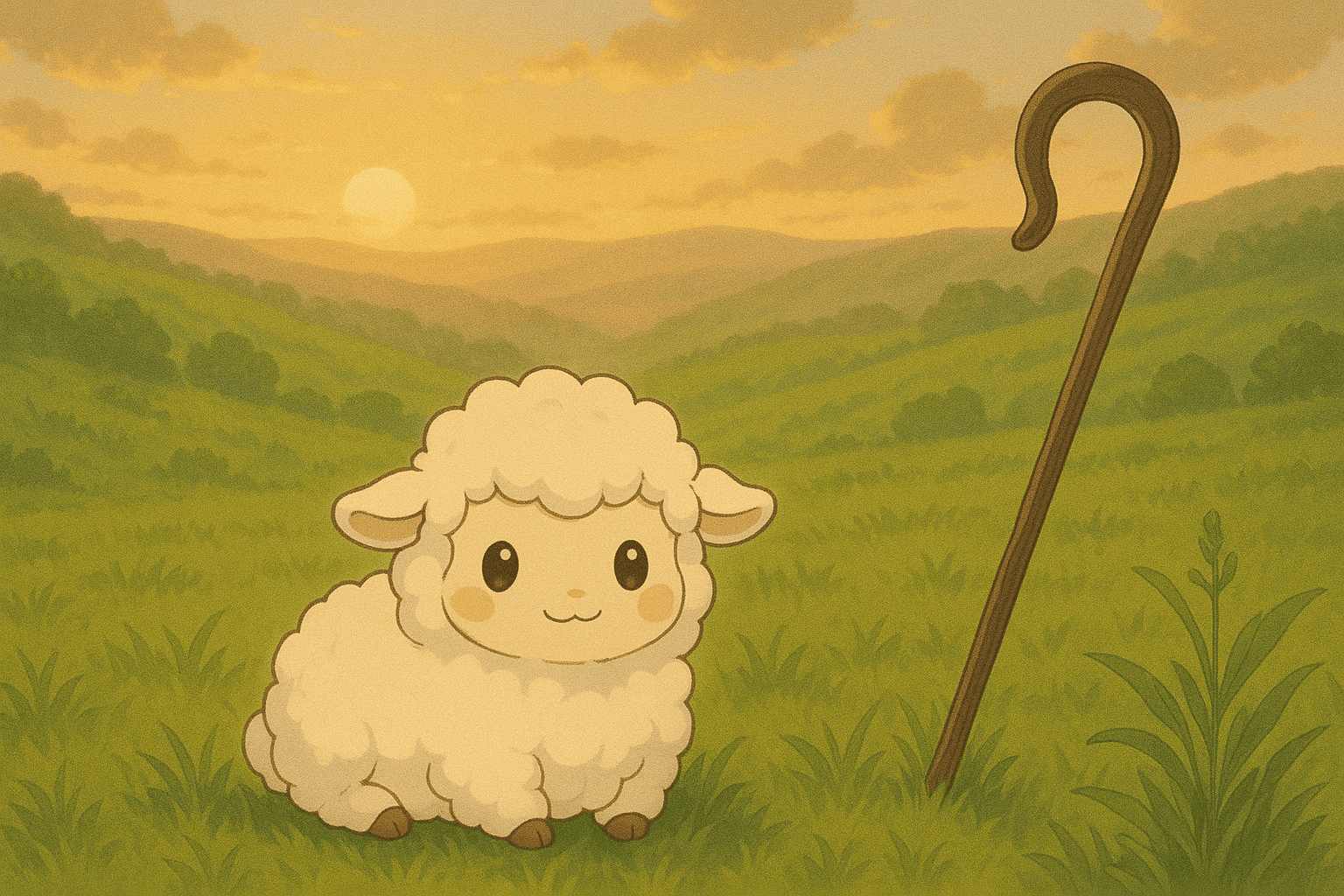4 facts you didn’t know about Psalm 23

Many of us can recite Psalm 23 by heart. We’ve taken comfort in it’s words and likely learned it early in our spiritual life.
But what’s so interesting about the bible is there are always more to discover.
Here are 4 facts about Psalm 23 you might not be aware.
Fact 1: It is written from the perspective of a sheep
The author of Psalm 23 is David.
David was a shepherd during his youth. Before being a king of Israel, he was tending to his family’s sheep in Bethlehem. But the interesting thing is when he wrote Psalm 23, he didn’t write from the perspective of a shepherd, instead he wrote it from the perspective of a sheep.
This shift encourage us to identify as a dependent creature rather than the heroic protector.
But why a Sheep?
Sheep are one of the most vulnerable creatures on earth. They are not able to defend themselves, neither can they navigate alone. They won’t even be able to find water on their own.
Interestingly, a sheep can only lie down to rest when four specific conditions are met.
- Free from fear Sheep are easily anxious and startled easily. They won’t be able to lie down if they sense danger.
- Free from friction They must not have tension or any form of conflicts among their own flock or they won’t be able to settle down.
- Free from pests Flies, parasites and other flying bugs will make the sheep too restless to lie down.
- Free from hunger A hungry sheep will constantly look for grass to eat and won’t be able to lie down and rest.
So the verse “He makes me lie down in green pastures” is actually far more profound than it sounds. It’s not about God just providing a nice scenery, but it’s about God creating a completely safe environment with full provision so that the sheep can lie down and rest.
Fact 2: A shepherd is kingship
During the ancient times, the term “shepherd” was commonly used as a metaphor for kingship and leadership. Kings throughout Mesopotamia used shepherd imagery to describe their leadership role.
King Hammurabi, one of Mesopotamia great kings once wrote, "I am the shepherd who brings well-being and abundant prosperity; my rule is just... so that the strong might not oppress the weak."
So when David wrote “The Lord is my shepherd”, he wasn’t just saying God provides, he was declaring “The Lord is my King”.
Fact 3: God invited us as the honoured guest
While the beginning of Psalm 23 put us in the perspective of a sheep, half way through, we are now guests that God has invited over.
5 You prepare a table before me in the presence of my enemies. You anoint my head with oil; my cup overflows.
During the ancient times, once we are invited to someone’s table and they anointed our head with oil, we came under their full protection. Enemies will not be able to touch us without dishonoring the host. “You prepare a table before me in the presence of my enemies.” is not just about feeding us despite opposition, it’s also a declaration that publicly marked us as someone under divine protection.
God doesn’t just feed us in the face of opposition, He publicly honours and protects us. If anyone dares to harm us. they would be dishonouring God himself.
Fact 4: Psalm 23 reflects 3 timelines
Psalm 23 is structured into 3 distinct life stages.
Past - Rest Phase
2 He makes me lie down in green pastures, he leads me beside quiet waters, 3 he refreshes my soul.
This phase speaks to us about God’s care during the season of rest, healing and renewal. When life is calm, needs are met, the soul finds refreshment.
Present - Work Phase
3 He guides me along the right paths for his name’s sake.
This is the active phase, when we’re making choices about work, relationship and purpose. God doesn’t leave us to wander. He leads us in alignment with His will, so that our lives bring honour to His name.
Future - Sorrow Phase
4 Even though I walk through the darkest valley, I will fear no evil, for you are with me; your rod and your staff, they comfort me.
God does not promise us a bed of roses. It acknowledges that there will be suffering and uncertainty, this phase refers to any negativity we face in life ranging from aging, declining health, to deep grief or trauma and other unknowns. Despite it all, God’s promise is not just to protect us, but also to accompany us.
David didn’t write this psalm just for comfort. He wrote it as a testimony of lifelong confidence in God’s faithfulness.
Conclusion
Psalm 23 does not celebrate the sheep’s strength, intelligence or capability. It highlights their complete dependence on a good shepherd. The sheep that strays is the one that gets lost, attacked or even dies. But the sheep that stays close to the shepherd? That one will flourish.
This isn’t naive, it’s profoundly wise.
I hope these fresh insights helped you to rediscover just how great and trustworthy our God is. Let us place our reliance on Him and be confident that Jesus will always be with us.
Amen.
